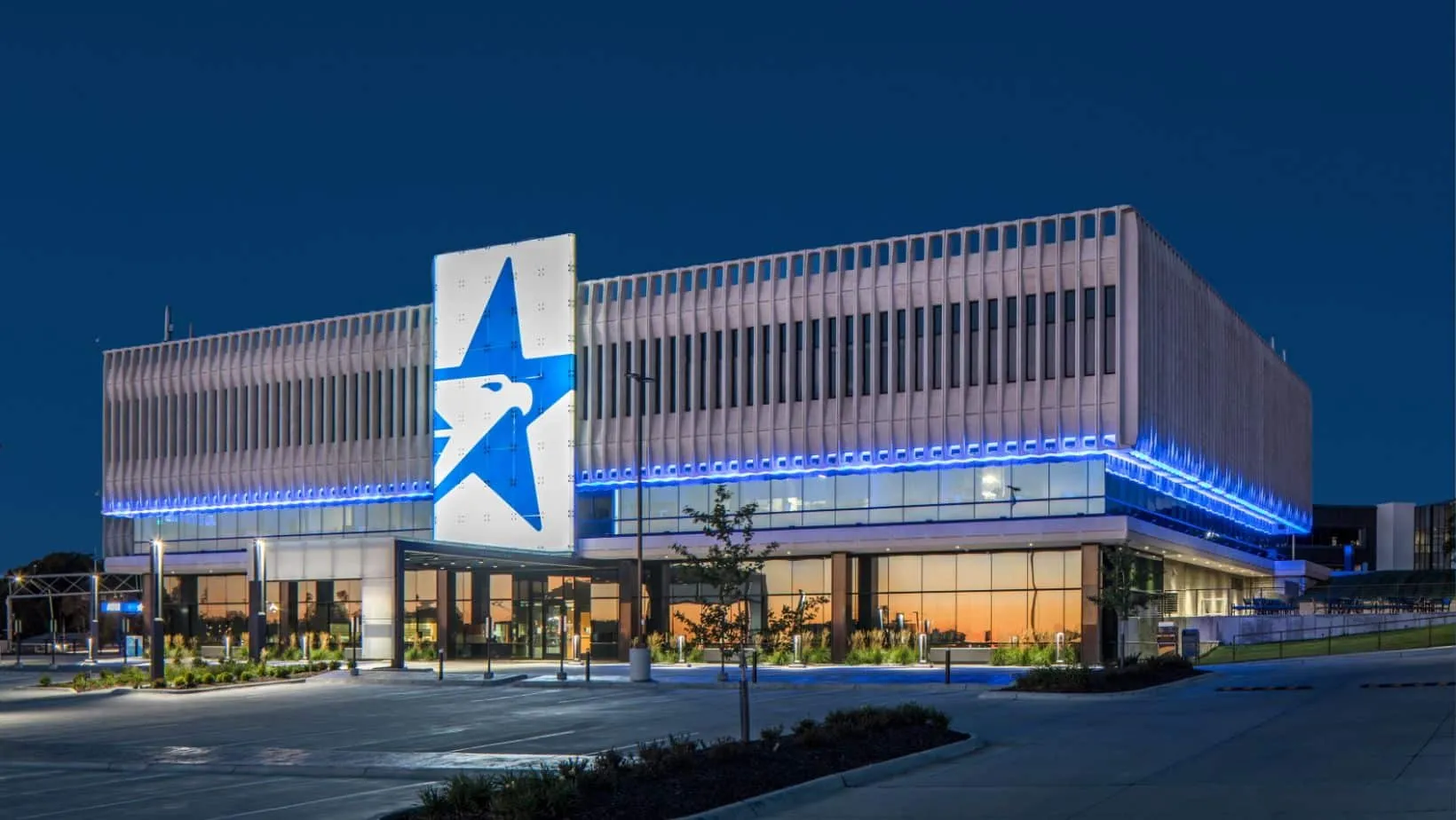
Make sure your lender is a good fit for you.
Should you interview home lenders before making an official choice? Absolutely. The lender you choose will make a significant difference in the ease and quality of your homebuying experience. Open communication and a little Q&A will help you determine if a lender will only provide basic service or go further with you on your homebuying journey—someone who makes you a priority and finds a loan to fit your needs. Considering buying a home is a major investment, a personalized approach will help you feel more confident at every next step.
Use these conversation starters in your discovery process for a mortgage loan officer to partner with:
Question #1: What kind of communication and support can I expect?
Working at your pace, understanding your goals and being responsive is the short answer. Purchasing a home is a complex process, and most individuals will only navigate it a few times in their lifetime. It’s a process that’s always improved when your lender gets to know you, bridges any knowledge gaps and works with you to crunch the numbers. Asking how a lender plans to support you will help you get a sense of their level of service and provide a glimpse of future interactions.
Talk to an expert
Question #2: What are your available mortgage options—and which ones are best for me?
Your lender should know there’s no such thing as a one-size-fits-all loan, but there are many options that fit more types of buyers. Each loan type has different requirements, and you’ll want your lender to explain which one suits your individual needs. FHA loans: Federal Housing Administration (FHA) home loans are popular among first-time home buyers for their flexible credit and income requirements. FHA loans also offer lower down payment requirements.
- USDA loans: Backed by the Department of Agriculture and available to homebuyers in designated rural and suburban areas, our lenders can help determine if this option with no downpayment option is right for you.
- Conventional loans: Preferred by buyers with strong credit scores, these loans have higher down payment requirements but may offer lower rates.
- NIFA loans: We’re proud to be a participating lender in the Nebraska Investment Finance Administration home loan program, designed to help low- and moderate-income borrowers secure affordable financing.
- VA loans: Available to eligible current and retired service members and their spouses, these loans have flexible qualifying requirements and need no down payment.
- Jumbo loans: Designed for homes with larger purchase prices, these loans require a higher credit score (700 and above) and liquid assets to cover payments for 6-12 months.
- Professional loans: Professions with unique debt and income scenarios (such as doctors, dentists and attorneys who are starting their careers) can benefit from these loans with lower down payments that do not require private mortgage insurance.
Question #3: How much money do I need to put down?
The answer to this question should feel more like a discussion, as there are a lot of variables to consider. Your income, how much you want to spend, your budget, your credit score, how much you have in savings and your qualifications for special loan programs are all factors. An expert lender will be able to explain every option. The list below will help you familiarize yourself with some of the general requirements.
- FHA Loans: A minimum down payment of 3.5% with a credit score of 580 or above or 10% for scores between 500-579 is required. An additional upfront payment currently set at 1.75% of the total mortgage amount is required for your mortgage insurance premium (MIP).
- USDA Loans: No down payment required. However, there is an upfront “guarantee fee” of 1% of your total loan amount.
- Conventional Loans: Down payment requirements vary based on several factors, including debt-to-income ratios and credit history. While a down payment of 20% is required to avoid private mortgage insurance (PMI), it may be possible to have a down payment as low as 3%, although lower down payments may increase interest rates. Conventional loans also often have a loan origination fee of up to 1%.
- VA Loans: VA loans also have zero down payment requirements. Like USDA loans, they have a 1% “funding fee” due at closing.
- NIFA Loans: With the Homebuyer Assistance Program from NIFA, available to qualifying individuals through ANB, individuals can borrow additional funds for down payments and closing costs.
- Additionally, homebuyer grant programs in Nebraska can provide up to $15,000 in assistance to help cover closing costs and down payments.
Question #4: How is the interest rate different from the annual percentage rate (APR)?
Lenders will want you to look at both the interest and annual percentage rate (APR), but the APR will give you a better idea of your total loan’s true cost. Along with the interest rate, the APR includes other fees like closing costs and mortgage insurance premiums (if needed).
There are a lot of factors that create your final APR, and your lender should help you explore each. APR variables include:
- Credit score: Higher credit scores may qualify for lower interest rates.
- Loan size: Very small or very large loans may have higher rates.
- Term length: Shorter-term loans often have lower interest rates, while longer terms can increase the total interest paid and potentially raise the APR.
- Down payment size: A larger down payment can lead to a lower interest rate.
- Market conditions: Current market rates and the overall economic climate are the biggest driving factors behind mortgage rates.
- Loan fees: Origination fees, application fees and mortgage insurance premiums can increase the APR.
- Closing expenses: Appraisal fees, title insurance and other closing-related costs can also increase your loan’s APR.
- Discount points: A fee paid upfront to lower the interest rate.
Question #5: What can I expect for closing costs?
In addition to your down payment, you’ll need to set aside funds to cover other costs at closing. These are typically 2-6% of your total loan amount and can include some of these common fees:
- Home inspection
- Appraisal
- Discount points
- Courier fee
- Credit reporting fee
- Title insurance and title search fees
- Loan origination fee
- Funding fee (VA loans)
- Mortgage insurance
- Homeowner’s insurance
- Recording fee
- Transfer taxes (vary by municipality)
As a buyer, you’re able to negotiate with the seller over who will cover certain closing costs. Ask your lender and real estate agent if a “seller assist” is an option for you.
Question #6: What is the average timeline between making an offer and the closing date?
Every lender will have a slightly different answer. At American National Bank, we ask you and your agent to allow 30 days between the offer acceptance and closing date. This time permits the underwriting process to assess your income and debt to determine risk and confirm compliance with lending requirements
Some of the paperwork you’ll need to prepare include:
- Recent pay stubs for the past 30 days
- W-2 forms from the past two years
- Federal tax returns from the past two years
- Bank statements from the past two months
- Investment and retirement account statements
- Current debts that may include other mortgages, car loans, student or credit card debt.
- Proof of down payment funds
Self-employed individuals will need to provide business tax returns and profit and loss statements instead. As you can see, this is another area of home lending where working with a seasoned pro can make all the difference.
Question #7: Can American National Bank meet these high standards for home lending?
Our ability to deliver high standards for service is one of the many reasons homebuyers choose American National Bank again and again. We’re here to help simply a complex process, answer all your “what ifs” and even talk through a few worries. Your home can be a place of comfort and security, and it can start by confidently choosing a lender with a proven ability to help you on your journey home.
Ready to get started?

Do more at American National Bank
ANB has been helping individuals, families, businesses and communities do more since 1856. We are a community and relationship-based bank that is committed to thoughtful, steadfast and principled banking. Our top priorities are protecting your assets, and providing the accounts and expertise needed to achieve your goals. When we do more, you can do more.
- Open an account that’s easy to use.
- Manage money like a pro.
- Improve your business.
- Use your savings to earn more.
Visit us in person at one of our many locations in the Omaha-Council Bluffs metro area, southeast Nebraska, southwest Iowa or the Twin Cities in Minnesota.
Articles contained in our news section are not intended to provide recommendations or specific advice. Consult with a professional when making financial decisions. Once published, articles are not updated; information may be outdated.
Recent Updates
-
 01.29.2026 | Financial Tips
01.29.2026 | Financial TipsA quick guide to home equity lines of credit (HELOCs) in Omaha
Looking for flexible, affordable, low-interest credit in Omaha? A home equity line of credit (HELOC) could be the solution. If...
-
 10.15.2025 | Business Banking
10.15.2025 | Business BankingProtecting your company from business payment fraud
One hard truth of business is that scammers are always on the prowl. For them, your hard work is their...
-
 04.19.2025 | Business Banking
04.19.2025 | Business BankingLoan options for first-time franchise owners in Omaha and the Twin Cities: A complete guide
Franchises offer a unique business opportunity for first-time owners, especially in growing metro areas like Omaha or Lincoln, Nebraska; Council...


